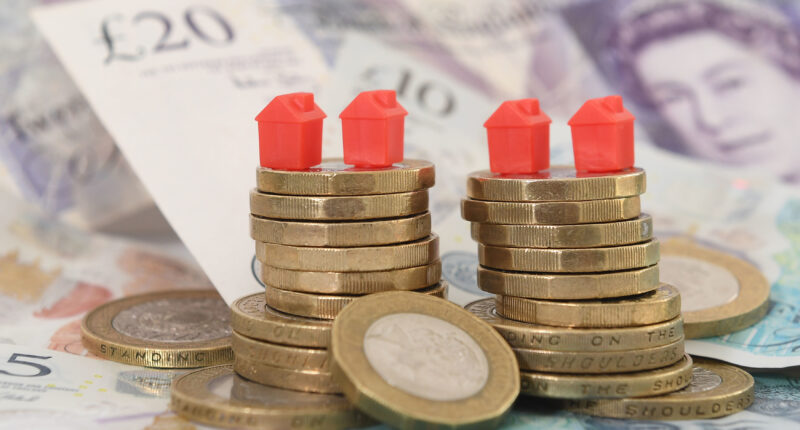Hundreds of thousands of households missed rent or mortgage payments last month – but there is help you can claim.
Consumer group Which? said around 700,000 people failed to pay key bills in April as the cost of living continues to soar.
Missed housing payments were particularly high among renters – with around one in 20 (5.2%) renters surveyed missing a payment in the past month.
Nearly six in 10 (59%) people reported making at least one adjustment to cover essential spending such as utility bills, housing costs, groceries, school supplies and medicines in the past month.
This included cutting back on essentials, dipping into savings, selling possessions or borrowing.
Rocio Concha, Which? director of policy and advocacy, said: “It’s very worrying that so many households are missing housing payments.


“We’d encourage anyone who’s struggling to seek free debt advice and reach out to their mortgage provider or landlord for help.”
Where to get help with bills or debt
A range of cost-of-living support is available. People can visit the helpforhouseholds.campaign.gov.uk for more information.
As part of the support being given, millions of households across the UK are receiving a £301 payment from the Department for Work and Pensions (DWP) between now and May 17.
The payment reference for bank accounts will be “DWP COLP”, along with the claimant’s national insurance number.
Most read in Money
It is the first of three payments, totalling up to £900, for those eligible and on means-tested benefits, such as universal credit or pension credit, in 2023/24.
Welfare Assistance schemes
Many local councils have Welfare Assistance schemes to help struggling families.
Help available varies, but you could get free cash, food vouchers, and help for bills like rent and energy.
Check with your council to see whether you are eligible and what you can claim.
Household Support Fund
This is another scheme you can access through your local council.
It’s designed to help those in most need with payments towards the rising cost of food, energy, and water bills.
Check with your council directly to see what’s on offer as some share money with charities which can then give you cash or food vouchers.
Some councils restrict how often you can apply for money through this scheme to once a year, so double-check.
Check your benefits entitlement
Even though the government is stopping much of the cost of living help currently on offer, some people will still be able to get financial support.
If you claim pension credit, income support or universal credit you may be entitled to further cost of living payments.
Depending on other tax credits or benefits you already get, you could get either three or five further payments.
You can find free-to-use online benefits calculators to work out what you’re entitled to.
Entitledto’s free calculator works out whether you qualify for various benefits, tax credits and Universal Credit.
Debt charity StepChange also has a benefits checker which is free to use and won’t record your results.
Make sure you have key financial information to hand, such as bank and savings statements, and information on pensions and existing benefits.
If you live with a partner or family, get their basic financial information together too as this could affect your claim.
Contact your provider
All mortgage lenders and other essential services providers will help you if you’re struggling to keep up with bills.
Every company has a different policy but it’s always worth contacting them directly to ask for help – either from a hardship fund or by giving you more time to pay.
Even if you’re not in trouble yet but you’re worried you might be soon, call your energy company, broadband provider or lender to get a plan in place.
Free and confidential debt advice
There are several charities and services that offer free help and advice if you’re worried about money.
It’s always best to contact one of these services before thinking about debt consolidation or using a debt adviser who will likely charge you.
Citizens Advice is a free and impartial service which will help you come up with a plan to get on top of your debt including which payments to prioritise and how to reduce your living costs.
The organisation’s website has a useful page with advice on many aspects of debt, but you can contact them directly by phone, online or in person for more personalised help.
StepChange is another free advice service offering support and guidance online or over the phone, and it’s completely confidential.
You’ll need to provide details of your debts, income and household spending to get a clear picture of where your money goes.
Where possible, their advisers will help you come up with a plan to repay all your debts but in a way that you can afford.
National Debtline is a charity run offering free and confidential advice to people in England, Wales and Scotland.


You can contact it online or over the phone on 0808 808 4000, between 9am and 8pm Monday to Friday, and 9.30am to 1pm on Saturdays.
An adviser will help you work out what you can afford to repay, and help you decide on the best solution for your debt.
Do you have a money problem that needs sorting? Get in touch by emailing [email protected]









